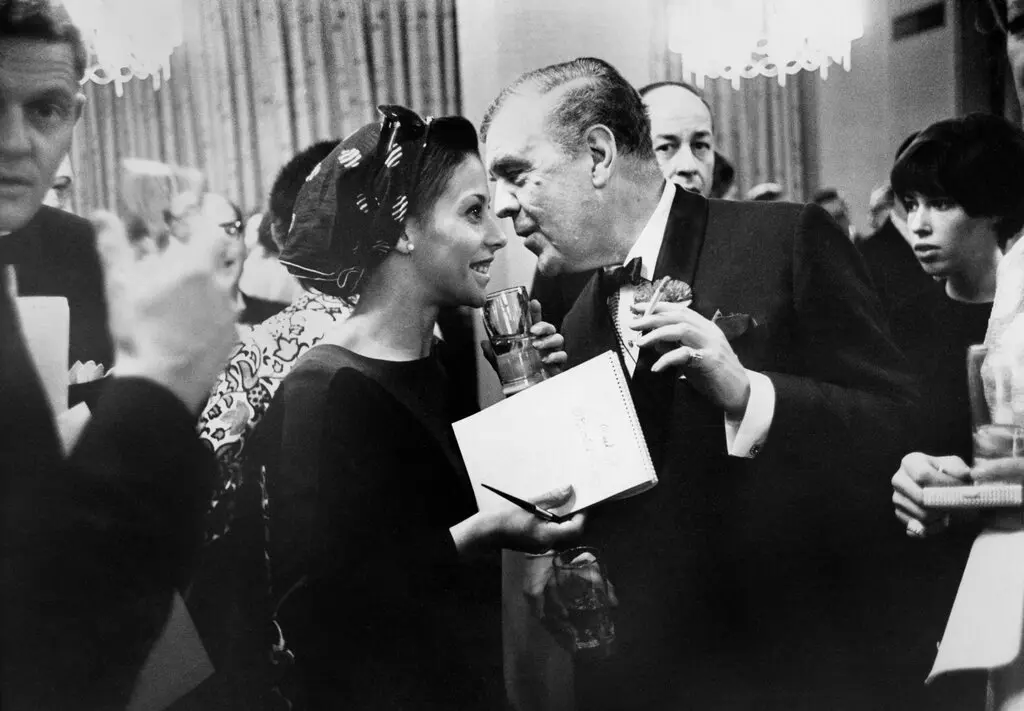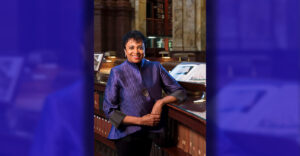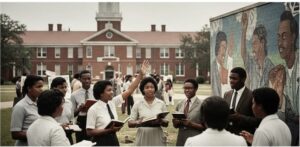Bernadette Carey Smith, Black Reporter in Mostly White Newsrooms, Dies at 83

She was one of the first Black female journalists at The New York Times and The Washington Post. The Times put her on the staff of a women’s news section.
Bernadette Carey Smith, who in the 1960s was one of the first Black women to be hired as a reporter at The New York Times and The Washington Post, died on Dec. 5 at an assisted living complex in Tuckahoe, N.Y. She was 83.
Her nephew Scott Taylor said the cause was arteriosclerotic cardiovascular disease. Her death was brought to the attention of The New York Times only last week.
Ms. Smith, who married Bruce Smith, an executive at the American Communications Group, in 1980, was still Bernadette Carey when, in October 1965, The Times hired her to work on its women’s news section, which at the time was called Food, Fashions, Family, Furnishings.
She may well have been the newspaper’s first Black woman reporter, although records are inconclusive; certainly she was one of only a handful of Black journalists, male or female, hired by The Times before the late 1960s.
he women who worked for the section said they were overlooked by the rest of the paper. For most of its life span the department was set apart from the main newsroom — relegated to “some dark little corner of The Times,” as Phyllis Levin, another alumna of the section, put it in 2018 in a Times article.
Ms. Smith’s job involved writing about the latest fashions and sometimes the celebrities who wore them. In late 1965, the Italian movie star Sandra Milo traveled to New York for the premiere of her newest movie, Federico Fellini’s “Juliet of the Spirits,” and brought with her an entirely blue wardrobe and five fur coats.
“The day after she arrived,” Ms. Smith wrote, “the fur coats, including one sable, one chinchilla and a mink, were missing,” apparently stolen from the actress’s hotel room. The article went on to detail what Ms. Milo shopped for in New York and what she would wear to the movie premiere. (What happened to the furs remained a mystery.)
She also wrote about the New York visit of an Austrian prince, collectors of odd gadgets and what children in the audience were wearing at performances of “The Nutcracker” at Lincoln Center.
Ms. Smith stayed at The Times for two years, then joined The Washington Post. Richard Prince, a Post alumnus, said in a memorial article on his website, journal-isms.com, that she was the newspaper’s second Black female reporter, after Dorothy Gilliam.
At The Post, Ms. Smith was given more substantial assignments. She covered a speech by the Rev. Dr. Martin Luther King Jr. at the National Cathedral, the funeral of Senator Robert F. Kennedy and other high-profile events.
“Her talent and perseverance produced extraordinary stories that humanized national news at a time when all too many stellar women of all colors and backgrounds were shunted off to the Pink ghetto of society pages,” Myra MacPherson, who started working at The Post just as Ms. Smith was leaving, said by email.
Ms. Smith’s Post career also lasted about two years, before it was announced that she would become editor in chief of a new Black women’s magazine called Sapphire.
But the name Sapphire didn’t stick, and neither did Ms. Smith: By the time the magazine, renamed Essence, published its first issue in May 1970, she had been replaced. Edward Lewis, one of the magazine’s founders, in his book “The Man From Essence: Creating a Magazine for Black Women” (2014), said her request for a 5 percent share in the company was one sticking point.
Ms. Smith began working at Vogue instead, and by the end of 1969 she had made news herself by dating the television personality
David Frost. “Duo at Asti’s: David Frost and Vogue writer Bernadette Carey,” The Daily News of New York wrote that December in a gossip item.
She and Mr. Frost had met at a party in 1968 and were an item for a year or two, attending dinners with boldface names like Aristotle and Jacqueline Kennedy Onassis.
“David had a network show in America by then and was the toast of New York,” Ms. Smith recalled in an interview with The Mail of Britain in 2013, when Mr. Frost died. “He’d taken a house in the Hamptons. I didn’t look too bad, and I had a fairly decent wardrobe, which David liked.”







